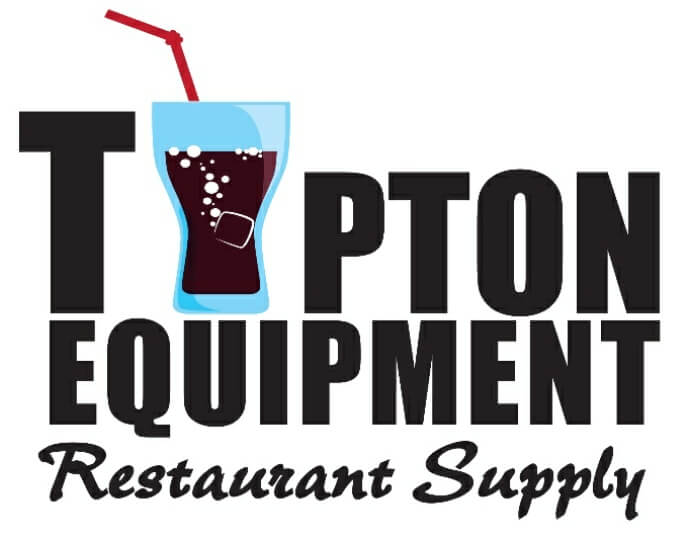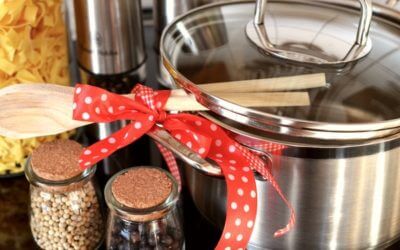Tips for Keeping Your Commercial Sink Sparkling Clean
April 8, 2018Your commercial kitchen, just like your personal kitchen, must be kept clean at all times.
With all of the cooking and food processing you do, it is inevitable that your sink gets messy. Cleaning up your commercial kitchen is incomplete without proper cleaning of your sink.
A clean stainless steel sink adds to the overall beauty of your commercial kitchen, giving it an extra sparkle. More than that, it adds to the lifespan of the sink itself. Consider a few cleaning and maintenance tips for keeping your commercial sink clean.
Scrub daily
Everything from food stains to soap deposits and water spots accumulate if you don’t keep cleaning them regularly. Given how frequently your commercial kitchen sink is used, it is important that you scrub your sink regularly (read: daily). At the end of business hours each day, apply a dishwashing liquid formula or a non-abrasive cleaner to a bowl of warm water and scrub gently with a sponge.
Remove stains with baking soda
Despite the resistant material it is made of, your commercial kitchen sink will occasionally get stains that just don’t seem to go away with regular cleaning formulas. Should you notice any such stains, mix baking soda with water until you achieve a consistency similar to that of toothpaste. Using a non-abrasive scrubbing pad, scrub off stains and rinse thoroughly.
Make a paste with borax and lemon juice
Another wonderful stain-removing agent is lemon juice. Formulate a paste containing lemon juice and powdered borax. Run water into the basin and scrub with a sponge. Rinse with running water afterwards. Lemon as a cleansing agent will be useful regardless of the material your commercial kitchen sink is made of.
Bleach to shine
A clean and shiny porcelain adds to the general aesthetics of your commercial kitchen, making it look both clean and attractive. Line your enamel with paper towels and soak through with bleach. Leave the paper towels for 30 minutes and then remove. Rinse off with water when done. Note that bleach fades colors, so this technique is best for white or steel-colored porcelains.
Add olive oil for extra shine
Want to give your sink that extra sparkle? Olive oil will do the trick. When the sink in your commercial kitchen has been cleaned and dried thoroughly, give it some extra shine by adding a few drops of olive oil to a lint-free cloth. Buff the sink and its fixtures with this cloth until they begin to sparkle.
Quick Tips
Rinse sink surfaces with warm water after each day’s use.
Wash with a mild abrasive, non-scratching powder such as baking soda, if a deeper cleaning is needed.
Mix a few teaspoons of lemon juice with tartar into a paste to tackle rusts and stains.
Dab sink surfaces dry with clean towel so that water spots do not form on the surface.
Keep the drains of your commercial kitchen sink clean and clog free by pouring in a solution of salt (1 cup), baking soda (1 cup), cream tartar (1/4 cup) and boiling water down the drain once every week.
Try as much as possible to keep hair, food chunks, grease, and other forms of debris away from your drains.
If in view of your customers, the cleanliness of your commercial kitchen will go a long way to attract customers and keep them around. Should your sink appear messy, you may turn potential keepers away from your commercial kitchen. Clean daily, scheduling deep cleaning periodically, and practice our simple maintenance tips to keep your commercial kitchen sink sparkling, hygienic, attractive and clog-free.
Want some tips for your home kitchen, click here!
5 Keys to Creating the Perfect Restaurant Seating Areas
Restaurants are about so much more than just food. From the setting and layout of your restaurant to your choice of colors, it takes a lot more than an appealing menu to keep diners coming back for more. When setting up your restaurant, booths and chairs are important...
5 Essential Buying Tips for Your Next Food Prep Work Table
The right foodservice equipment is pivotal to the efficiency of your kitchen. One of the most important types of foodservice equipment for any kitchen is the work table. With limited room on countertops available for your food prep needs, the cooking process can drag...
Food-Cutting Secrets to Beautiful Dishes
In the restaurant industry, presentation is often said to be just as important as the food itself. Using the right knowledge, skills and restaurant supplies, you can incorporate creativity into your presentation, making guests feel that they are getting something...
Top Space-Saving Tips for Commercial Kitchens
Top Space-Saving Tips for Commercial Kitchens Space is always an important consideration when setting up a kitchen, and this is even truer for commercial kitchens. With a strong focus on functionality and the kitchen supplies that meet the needs of your commercial...
5 Ways to Get the Most Out of Your Mixer
No one wants to eat off of dirty or tarnished silverware. A stand mixer is a highly useful piece of kitchen equipment to invest in. Although this type of kitchen equipment does not usually come cheap, it can last a lifetime when properly cared for. Despite all your...
Restaurant Prep Tool Selection Simplified
What’s a restaurant kitchen without high-quality prep tools that can withstand the pressure of frequent use? Whether you already have a restaurant you’re running, or you’re just planning to launch one, one vital factor that could make or mar your business is how you...
Beginner’s Guide to Choosing a Commercial Ice Cream Freezer
Ice cream is a delicious and appealing desert treat for everyone, young or old. Having made the decision to sell ice cream to your customers, whether you have a restaurant, convenience store, or specialty ice cream parlor, it is time to begin stocking up on the right...
How to Choose the Right Kitchen Scales for Your Restaurant
A food scale is an essential item in every restaurant’s store of kitchen supplies. Designed to take the guesswork out of food measurement and maintain consistent food serving sizes, food scales are indispensable kitchen supplies in the commercial kitchen. With such a...
Beer Chilling Systems: Which Type Is Right for My Restaurant?
A refrigeration unit is integral to the functioning of any restaurant. Beers are best served cold - there’s no questioning that! But which beer chilling system is the best? From reach-in coolers to glycol chillers, a beer chilling system is an important piece of...
What Equipment Will I Need to run a Food Truck?
There’s a lot of planning that goes into starting your own food truck business. Before you hit the road with your delicious food offerings, you’ll need to fill up your truck with all the right foodservice equipment. Considering the lengthy list of possible items to be...
8 Types of Food Thermometers: What You Need To Know
Food thermometers are essential restaurant supplies for your commercial kitchen. They ensure that foods prepared in your commercial kitchen are cooked to the right temperature and held at that temperature for as long as necessary to kill any harmful bacteria. This...
How to Identify the Best Food Processor for Your Needs
Highly versatile and extremely efficient, food processors are designed to take away the hard work from repetitive kitchen activities. This type of cooking equipment can quickly become an invaluable tool in your kitchen. From chopping, to shredding, grinding, mincing,...
6 Keys to Choosing the Best Chafing Dishes for Your Restaurant
The chafing dish, also known as the chafer, is an essential piece of restaurant equipment for any establishment that wants to keep food hot. This type of restaurant equipment gets its name from the French word, chauffer, which means to heat, and it’s easy to see why....
Turning up the Dial on Commercial Fryers: How to Choose One for Your Restaurant
Fried food is a well-loved favorite. This is a fact. It also makes a fryer an important piece of equipment to have in your commercial kitchen. Just consider how many appetizers and sides require frying: onion rings, French fries, and fried green tomatoes are just a...
What’s in a Cooking Pot, How to Choose the Right One?
As a restaurant owner, your cooking needs might vary. Did you know that a good quality pot can greatly improve your cooking experience, while also improving the quality of your cooking? This cooking equipment is a very important one that cannot be done away with...
















I can’t emphasize enough how important it is to keep a spotlessly clean commercial sink in my experience as a small business owner who runs a busy café. Second, the advice to use baking soda to remove stains was revolutionary! Even though stubborn stains can be challenging to remove, this natural remedy works like magic. It saves us money on pricey chemical cleaners in addition to being ecologically friendly. A spotlessly clean sink demonstrates a commitment to professionalism and hygiene beyond just being a matter of appearance.